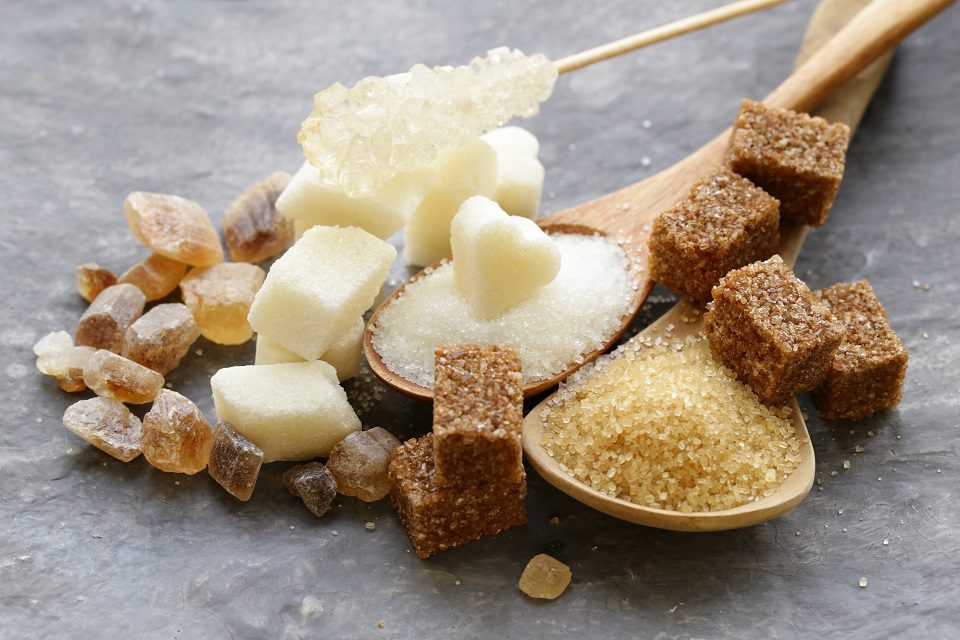If you want to eat a healthier diet, you probably don’t go a day without thinking or dreaming about sugar. It’s only natural, to be honest, especially since avoiding sugar is harder than you’d think. After all, the wide majority of foods we consume have plenty of sugar.
Luckily, there is really no reason to cut sugar altogether. It seems that the main secret is to know the difference between natural and refined sugars, and also see how they might impact your body. “Natural sugar is any most types of food.
Just think of the sugar that’s in the fruit or dairy or carbohydrates.” as Lindsey Wohlford, a well-known wellness dietitian, explained. “Refined sugar might come from a natural source, but it has been processed so only sugar remains, such as granulated sugar from sugar cane, or even corn syrup from corn.”
Other types of foods like honey and agave sit somewhere in the middle of natural sugar and refined sugar. It can be quite tricky to fully understand the different types of sugar you consume, so as Wohlford recommended, a traffic light system might come in handy.

Natural sugars are safe to eat
Any sugar that’s naturally occurring in a food automatically gets the green light. That also includes sugar in fruit and starchy vegetables, but also whole or minimally processed carbohydrates such as brown rice and whole grain pasta. Sugar in dairy products such as milk and cheese is also okay.
We are not as worried about this kind of sugar because these foods have a list of other components in them that might slow down how quickly sugar is digested. This also prevents that rapid blood sugar spike and drop that could ultimately lead to weight gain, insulin resistance, and even diabetes.
Plant-based foods also come with fiber, and dairy comes with a lot of protein. Dried fruit has its own natural sugars unless it contains sugar or other sweeteners added to it. You can eat these foods as part of a plant-based diet, not just to limit your sugar, but you also have to make sure you get all the different nutrients you could possibly need.
Just fill two-thirds of your plate with whole grains, vegetables, fruits, beans, and seeds, and then fill the rest of the plate with lean protein such as chicken, fish, or tofu.
Added sugar should be eaten in moderation
Foods with added sugar definitely get the yellow light. That also includes the cane sugar in your yogurt, the honey, the syrup in your granola bar, but also the agave you might put in a drink. Added sugar can also appear in foods like bread and pasta sauce.
What you want is to minimize any kind of food with added sugar. Also, try to pay attention to nutrition labels, and stay below the recommended level of added sugar per day. Women shouldn’t have over 25 grams of sugar per day, and men shouldn’t have more than 37 grams.
Refined or processed sugar should also be limited
Try to eat red-light foods as little as you can, especially since they contain a ton of processed sugar. Whether we’re talking about candies, cookies, cakes, and any other sugar-based foods, they all have more than the recommended dose of added sugar.
One candy bar, for example, can contain around 30 grams of added sugar. Eating these foods constantly leads to weight gain and other issues. It also means you will experience that sugar spike and if that happens on a regular basis, it could contribute to obesity, diabetes, heart disease, and various other chronic conditions.
It’s also important to think about what’s going on in your body when you reach for these foods, and also keep them as a special treat, not for everyday consumption. Sodas and sweetened beverages get the red light as well, even if they use artificial sweeteners.
Artificial sweeteners might have their place for people who are used to drinking sodas and want to slowly transition away from them, but from a nutrition standpoint, they still get the red light.
Focus on eating whole foods
One of the best ways to make sure you are eating the right type of sugar that works for your body is to eat whole foods. Focus on lean proteins with vegetables, fruits, whole grains, nuts, beans, and seeds, which pack a mix of different nutrients that digest more slowly and also keep blood glucose levels stable. Packaged foods have often been completely stripped of such nutrients, and more sugar is added just to encourage you to buy them.
Sugar can cause weight gain
Obesity rates are increasing all over the world, and evidence shows that added sugar, which often comes from sugar-sweetened beverages, is one of the biggest contributors to obesity. Sugar-sweetened drinks such as sodas, juices, and sweet teas are all loaded with a lot of fructose, a simple type of sugar.
Consuming fructose also increases your hunger and desire for food more than glucose does, which is the main type of sugar you can find in starchy foods.

Increases the risk of heart disease
High-sugar diets have been oftentimes associated with an increased risk of diseases, such as heart disease, which is also the number one cause of death all over the world. Evidence shows that high-sugar diets might lead to obesity and inflammation but also to high triglycerides, blood sugar, and blood pressure levels.
All these are risk factors for heart disease. Besides, consuming too much sugar, especially the one that comes from sugar-sweetened drinks, has been increasingly linked to atherosclerosis, a disease that creates fatty and artery-clogging deposits in your body.
Linked to acne
A diet very high in refined carbs, such as sugary foods and drinks, has been associated with a higher risk of developing acne. Foods that contain a higher glycemic index, like processed sweets, are also known to raise your blood sugar faster than other types of foods with a much lower glycemic index.
Consuming too many sugary foods might cause a spike in blood sugar and insulin levels, which leads to increased androgen secretion, oil production, but also inflammation. They all play a role in acne development.
Increases risk of type 2 diabetes
Diabetes is one of the most important leading causes of mortality and reduced life expectancy. Its prevalence has doubled over the past 50 years, and research estimated that its burden will keep rising.
Excessive sugar consumption has been historically associated with an increased risk of diabetes. Even if no study has proven yet that sugar consumption causes diabetes, there are plenty of strong associations.
Increases the risk of cancer
Eating excessive amounts of sugar could potentially increase the risk of developing some types of cancers. A diet focused on sugary foods and beverages might lead to obesity, which can raise your risk of cancer.
Also, diets that are rich in sugar increase inflammation in your body, which could lead to insulin resistance, both of which increase cancer risk. A systematic review focused on 37 prospective cohort studies discovered that in two of five studies, a 60% to 95% increased cancer risk was noticed in cases of higher sugar intakes.
If you found this article useful, we also recommend checking: 10 Foods You Should Never Eat As Leftovers






